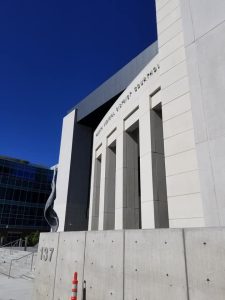



What is a Preliminary Examination in Utah? 
Preliminary hearings or interchangeable also called prelims or preliminary examination. Constitutionally our great Utah Constitution refers to them as “Preliminary Examinations.” See Article I, Section 12. [Rights of accused persons.].
Prelims are evidentiary hearings that require the prosecution to prove all Class A Misdemeanors and Felonies by at-least a probable cause standard. The defense the prosecution may call witnesses, but the defense rarely does. The main witnesses tend to be the investigating police officer and the complaining witness. It would be very unusual for the defendant to testify at a prelim.
The common practice in Utah varies, but often the prosecution uses Utah Rule of Evidence 1102 sworn statements in lieu of live testimony. Utah Rule of Evidence 1102 specifically allows for sworn statements under penalty of perjury to stand in lieu of live testimony. This is the standard practice for sex offense cases.
Although it can be much debated, one real purpose of preliminary hearings is to weed out bad cases.
The weeding out process should start with the police, followed by the district attorney’s screening team. Followed by the preliminary hearing and lastly the directed verdict and a motion for judgment notwithstanding the verdict.
Preliminary hearings are to ensure that the prosecution has at least probable cause on each-and-every element to prove their case. Realistically, the prosecution shouldn’t even charge a case unless they feel from the start they can prove the case beyond a reasonable doubt. Yet, that is not a legal standard and seems to not be followed by Utah prosecutors.

All Class A Misdemeanors and all felonies charges come with the constitutional and statutory right to a preliminary hearing. Class B, Class C misdemeanors and Infractions do not have the right to a preliminary hearing.
What Law Allows for Preliminary Hearings in Utah? Effective 1/1/2021.
Article I, Section 12. [Rights of accused persons.]
Our Utah Constitution requires preliminary hearings. See Utah Constitution Art 1, Sect 12.
It reads in part:
. . .
“Where the defendant is otherwise entitled to a preliminary examination, the function of that examination is limited to determining whether probable cause exists unless otherwise provided by statute. Nothing in this constitution shall preclude the use of reliable hearsay evidence as defined by statute or rule in whole or in part at any preliminary examination to determine probable cause or at any pretrial proceeding with respect to release of the defendant if appropriate discovery is allowed as defined by statute or rule.”
Utah Rule of Criminal Procedure Rule 7B. Preliminary examinations, also controls how preliminary hearings are conducted. Constitutionally preliminary examinations are the correct name, but often called preliminary hearings in practice.
A recent change to Rule 7B occurred in 2023 where a preliminary hearing bindover cannot be solely on hearsay alone.
Not every Utah criminal Class A or Felony should conduct a preliminary hearing, but all of them come with the right.
The starting position is that you are going to hold the preliminary exam, unless you have a good reason not to conduct the preliminary hearing. Significant considerations should be afforded whether holding the preliminary hearing will improve your discovery, or only solidify testimony under oath what may be later used in that witnesses’ absence. Although not the statutory or constitutional purpose behind preliminary exams, they are often used for discovery purposes by the defense.
“Although the guarantee of a preliminary hearing is fundamental, the evidentiary threshold at such
hearing is relatively low. As we have emphasized, a showing of “probable cause” entails only the
presentation of evidence sufficient to support a reasonable belief that the defendant committed the
charged crime. . . . To justify binding a defendant over for trial, the prosecution need not present
evidence capable of supporting a finding of guilt beyond a reasonable doubt. Nor is the prosecution
required to eliminate alternative inferences that could be drawn from the evidence in favor of the
defense. All that is required is reasonably believable evidence—as opposed to speculation—sufficient to
sustain each element of the crime(s) in question.”
All reasonable inferences must be drawn by the court in favor of the government in formulating probable cause. All facts are taken in the light most favorable to the prosecution. The court will not weigh the facts between conflicting witnesses. It is a low standard and a standard stacked against the defendant.
Example 1. He Said, She Said. You are charged with Rape in the Utah County Fourth Judicial District Court. At the preliminary hearing the alleged victim (complaining witness) testifies under oath that you raped her. You even testify also at the preliminary hearing that you didn’t rape and in fact where in Texas on the night in question.
 Rule: The judge must take all evidence in the light most favorable to the government.
Rule: The judge must take all evidence in the light most favorable to the government.
Rule: The judge will not weigh the evidence and make factual findings on who the judge believes is telling the truth. The judge will simply bindover the felonies.
Rule: Please don’t testify at your own preliminary examination unless you have a really, really good reason to do so.
Example 2. Circumstantial Evidence. You are charged with wildlife poaching in Carbon County. The Utah DNR officer testifies that he saw someone through the thick trees shoot a deer. Within minutes he finds you nearby with a warm barreled rifle in your hands.
Rule: The judge will not weigh whether the conservation officer is telling the truth, or whether you were just walking your dog in the wrong place at the wrong time. The judge will weigh the facts in the light most favorable to the government.
Rule: The prosecution is not required to eliminate all or any reasonable alternative explanations of the accused’s behavior.
Rule: The government doesn’t have to prove their case by the high standard of beyond a reasonable doubt, but only prove that your committed that crime by probable cause. Probable cause is one of the lowest evidentiary standards in criminal law. Only reasonable suspicion is lower.
It is far easier to talk about forming master strategies when holding the preliminary exam that will set up your jury trial perfectly. It is far harder to execute.
Yet that is what you are supposed to do when holding preliminary hearings. You are set the stage for the upcoming jury trial on what happens at the preliminary hearing.
Notifications